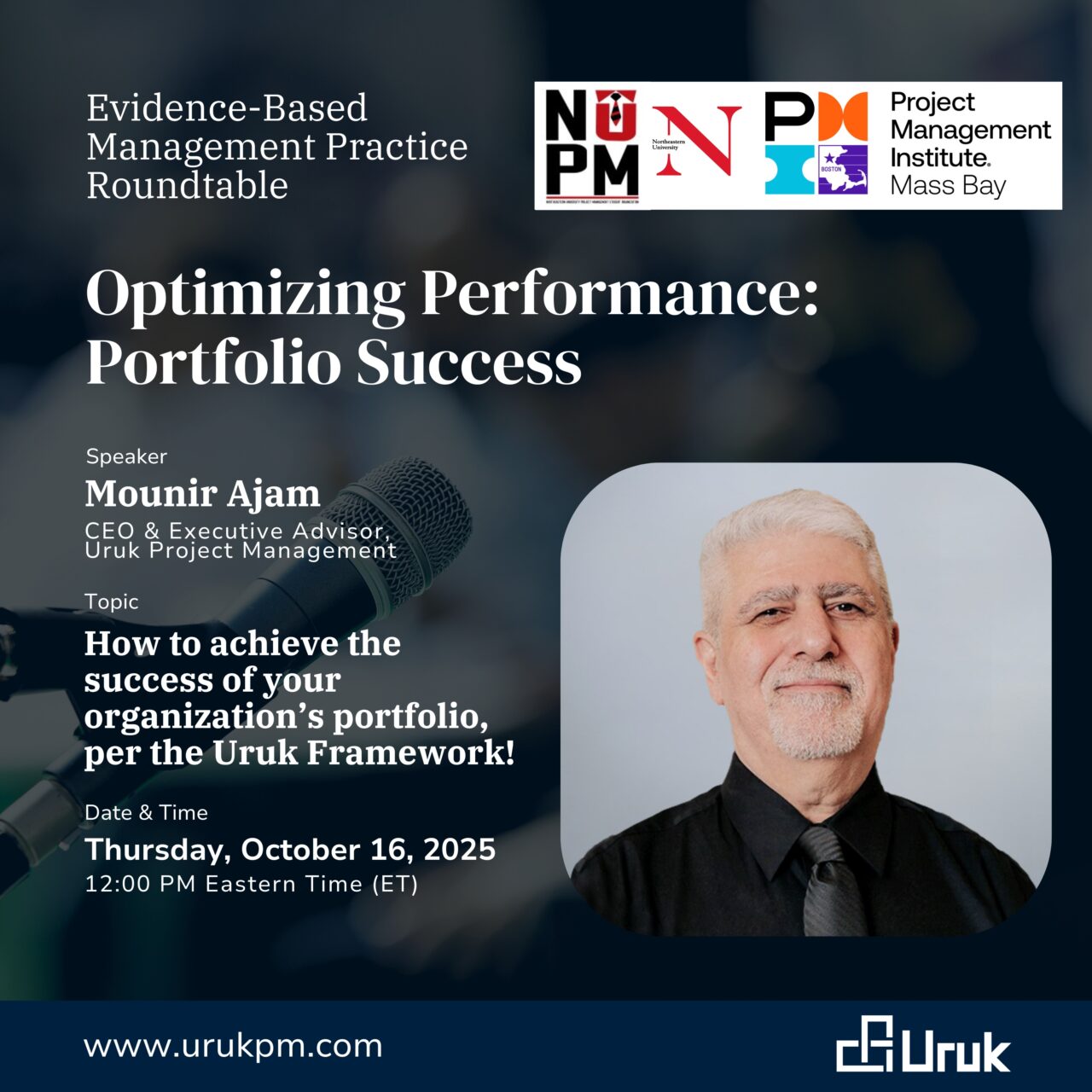In today’s dynamic business landscape, organizations are under increasing pressure to deliver value, adapt quickly, and align execution with strategy. Yet, many still struggle to define success in the project management context. Is it delivering on time and on budget? Is it stakeholder satisfaction? Or is it something deeper—something systemic?
At Uruk Project Management, we believe that success must be redefined. It is not just about managing projects efficiently; it is about ensuring that every initiative contributes meaningfully to the organization’s strategic goals. This is the essence of the Uruk Framework—a business-integrated approach to project management that emphasizes value, systems thinking, and continuous improvement.
Rethinking Success in Project Management
Traditional views of project success are often narrow and inconsistent. Many organizations equate success with meeting scope, time, and cost constraints. However, this limited perspective creates ambiguity and fosters a culture where failure is normalized and often blamed on project managers.
The reality is more complex. Projects are not isolated endeavors—they are business investments embedded within a broader organizational system. Good execution alone does not guarantee success. We must shift our focus from outputs to outcomes, from isolated tasks to integrated systems.
This is where the Uruk Framework begins: by challenging outdated assumptions and offering a structured, evidence-based alternative.
The Organizational Success Hierarchy
To understand how projects contribute to organizational performance, we must view success as a hierarchy:
- Project Success: Delivering the intended product or service
- Program Success: Coordinating related projects for synergistic outcomes
- Portfolio Success: Aligning initiatives with strategic intent and optimizing resource allocation
- Organizational Success: Achieving long-term goals, growth, and sustainability
At the heart of this hierarchy lies portfolio success—the critical bridge between strategy and execution. Without it, even well-executed projects can fail to deliver value.
Why Portfolio Success Matters
A portfolio is more than a collection of projects. It is a strategic instrument that translates vision into action. When managed effectively, it ensures:
- Alignment with organizational strategy
- A balanced mix of initiatives (risk, ROI, innovation)
- Effective governance and oversight
- Measurable value realization
Conversely, poor portfolio management leads to wasted investments, misaligned priorities, and missed opportunities.
The Four Dimensions of Project Success
To address the complexity of modern projects, the Uruk Framework introduces a multi-dimensional model of success:
- Technical Success – Was the intended product or service delivered in accordance with the design and specifications?
- Project Management Success – Was the project managed effectively and completed within the cost and schedule parameters?
- Product Delivery Success – Did the project deliver the expected output and results?
- Organizational Objective Success – Did the project contribute to strategic goals and generate the anticipated benefits?
Focusing on just one dimension obscures the full picture. A project may be delivered on time and on budget (D2), but if it fails to provide results (D3) or align with strategy and deliver sustained value(D4), can we truly call it a success?
This model enables organizations to diagnose root causes, identify systemic issues, and foster a culture of learning and improvement.
The PCA Model: A Proactive Approach to Success
To operationalize these insights, the Uruk Framework introduces the PCA Model—a structured methodology for achieving success across all four dimensions:
-
Predetermine Success
Success must be intentional, not accidental. This stage involves:
- Developing a robust business case
- Conducting feasibility studies
- Defining SMART success criteria
- Identifying risks across all dimensions
By setting clear expectations from the outset, organizations can avoid ambiguity and align stakeholders around shared goals.
-
Cultivate Success
Success is not a one-time event—it must be nurtured throughout the project life cycle. This includes:
- Managing each stage proactively
- Applying preventive and corrective actions
- Empowering teams and supporting sponsors
- Engaging stakeholders and communicating effectively
This step emphasizes collaboration, adaptability, and continuous alignment.
-
Assess to Achieve Success
Assessment is not just about closure—it’s about validation. The PCA Model recommends:
- Assessing D1 (technical) at final product acceptance
- Assessing D2 (PM) during project closure
- Assessing D3 (delivery) post-completion
- Assessing D4 (strategic objectives) when benefits are realized
This staged approach ensures that success is measured, not assumed, and that lessons are captured for future improvement.
The Uruk Framework: Business-Integrated Project Management
At its core, the Uruk Framework is about integration:
- Integrating projects with programs, portfolios, and organizational purpose
- Integrating project management with business, governance, products, and operations
This holistic approach moves beyond siloed thinking and empowers organizations to treat projects as strategic assets, not isolated tasks.
It also challenges the notion that success rests solely on the shoulders of the project manager. Instead, it promotes shared accountability across sponsors, teams, and leadership.
Closing Thoughts: From Hope to Achievement
Too often, organizations rely on hope—hope that projects will succeed, that teams will deliver, that value will emerge. But hope is not a strategy.
The Uruk Framework offers a structured path from vision to achievement. By embracing systems thinking, redefining success, and applying the PCA Model, organizations can:
- Deliver measurable value
- Align execution with strategy
- Build a culture of accountability and learning
In doing so, they move from reactive firefighting to proactive value creation—from isolated wins to sustainable portfolio success.
About the Author
Mounir A. Ajam is the Founder & CEO of Uruk Project Management and a leading voice in evidence-based project management. He is the creator of the Uruk Framework and a passionate advocate for transforming how organizations define and achieve success.



